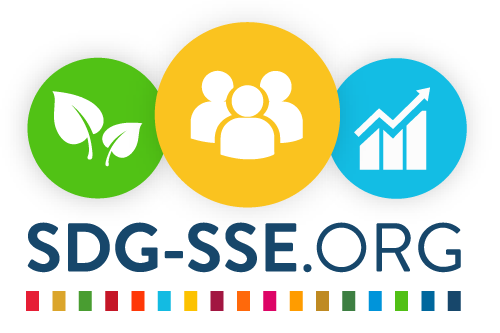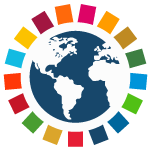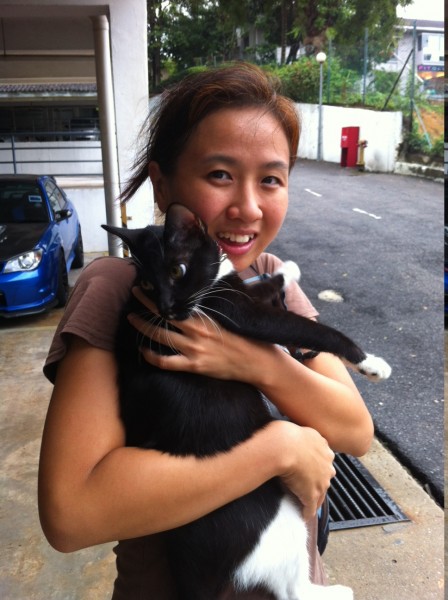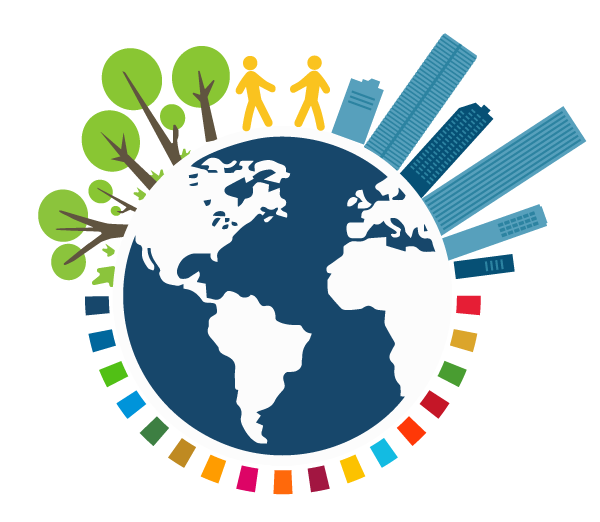Jun-E Tan
Individual
Kuala Lumpur
Description
Jun-E Tan
Researcher on SSE based in Malaysia
My research interests include social and solidarity economy in Malaysia, social media and trust (my PhD case study was Couchsurfing), Malaysian blogs and politics, and a smattering of other things. I seek to participate in worthy projects that contribute value to society, and I am always open to collaborating with social entrepreneurs and other researchers.
Show description
Main
Linking sustainable development and social and solidarity economy
- Post
- Link
- Project
- as Link
- Event
- as Link
Workshop on SSE in Southeast Asia
My presentation in the Fira d’Economia Solidària de Catalunya, on Social and Solidarity Economy in Southeast Asia will be held at:
- Time: Sat, 17:30 to 19:00 (90 min)
- Place: Sala Regina de Lamo at the building Ateneu Harmonia, within Fabra i Coats.
Promotion of the talk in the XES newsletter, in Catalan, is as below:
“L’ESS a Àsia i comerç just a Xina”
Tot i que, els últims anys, a l’Àsia, s’han produït avenços en l’àmbit de l’economia solidària, encara se’n sap poc a Catalunya. A la cinquena edició de la Fira, tenim el plaer de presentar el panorama d’un continent desconegut donant l’oportunitat de presentar-lo a tres persones.
Economia Solidària a Àsia del Sud-est (per Jun-e Tan, del Consell Asiàtic d’Economia Solidària i de http://www.sdg-sse.org, Malàisia): darrerament, alguns països d’aquesta regió han treballat per la promoció de les iniciatives d’economia solidària, tant en l’àmbit nacional com en el marc de l’ASEAN (una associació internacional de deu països de la regió, similar a la UE). Jun-e Tan ens farà un breu resum sobre aquests països i presentarà alguns casos que es poden trobar al web http://www.sdg-sse.org.
Comerç Just a la Xina (per Marta Gil Ibáñez, de la Universitat de València i cofundadora de l’ONG heArtS China): tot i que, avui dia, la Xina es veu com un centre global del desenvolupament econòmic, en aquest país, el comerç just encara es troba en una etapa inicial. Marta Gil ens ho contarà a partir de la seva investigació al territori.
Economia Solidària a Corea del Sud, a Hong Kong i al Japó (per Miguel Yasuyuki Hirota, de la Universitat de València): hi ha més moviments interessants a altres indrets de la regió. Miguel Yasuyuki, doctorant japonès d’economia social, ens explicarà la situació que es viu actualment i les polítiques públiques que es despleguen en aquesta zona.
#SSE (Social and Solidarity Economy) #Spain #Barcelona
Solidarity Club Meetup in Helsinki
On the 17 October, the Malaysian speakers of the SuSY Speaker Tour (Dr Jun-E Tan and Dr. Welyne Jeffrey Jehom) were invited to dinner at the Oma Maa food cooperative in Helsinki with the Finnish Solidarity Economy Network (FSEN). The website for FSEN is http://commons.fi (but is currently down for maintenance).
Ruby van der Wekken, representative of the FSEN, was the host of the event, attended by about ten members of the network. Some of the organisations participating in the Solidarity Club dinner included:
- Eetisen Kaupan Puolesta (Eetti), or Pro Ethical Trade Finland, an NGO that promotes equitable global trade, sustainable production and responsible consumption. Eetti is also the Finnish host for the SuSY Project.
- Stadin Aikapankki – Helsinki Timebank, which facilitates the exchange of services using time (calculated by hours) as a currency.
- Osuuskunta Oma Maa, or Cooperative Own Land, a local organic food co-operative which runs a community-supported agriculture programme
To give some idea of the activities of the Finnish national network on solidarity economy, here is a record of some of the issues discussed.
The global connection
Updates were given by Ms Wekken on the RIPESS annual meeting held in France in June 2016. During the RIPESS meeting, issues that arose included the cooptation of the solidarity economy space in different countries, the importance of forming alliances with other like-minded actors, and the importance of developing indicators. It was noted that there are different positions on developing legal frameworks (or not), and that funding remains to be a problem. Mapping was also discussed during the annual meeting.
Two initiatives were highlighted on mapping SSE and similar initiatives, including ESS Global and TransforMap.
Mapping the Finnish solidarity economy
On activities at the Finnish Solidarity Economy Network, a mapping effort has begun by identifying SE actors and interviewing them. The current map, which is still a work in progress, can be accessed here and includes the following organisations:
- Oma Maa (Helsinki)
- Elävä maa luomupiiri (Helsinki)Stadin aikapankki (Helsinki)
- Osuuskunta Jalavala (Helsinki)
- Vaatelainaamo Vaaterekki (Helsinki)
- Osuuskunta Ehta Raha (Helsinki)
- Osuuskunta Hyväntekijä (Joensuu)
- Kirjakahvilan (Turku)
- Tampereen Annikki (Tampere)
- Suomen Talkoot ry (Tampere)
- Uusruukki (Tampere)
Besides geographical mapping, some case studies have already been done through interviewing the organisations within the list above, on their operations and involvement in the solidarity economy. These cases will be uploaded on SDG-SSE.org after being translated from Finnish to English, which a member of the network has volunteered to do.
The interview questionnaire can be accessed here [link to be inserted after the commons.fi website goes up]. Members of the network were encouraged to add to the list of known organisations and initiatives, and to help in the interviewing if possible.
Future activities
An SSE manifesto in Finnish was circulated among the members and proposed to be updated using Google Docs.
In November, the FSEN will participate in the European Commons Assembly organised by the Commons Network. In December there will also be a major event by the FSEN to build a confederation of cooperatives.
Spearheading organic farming: Koperasi Belia Islam
This is a project located in #Malaysia.
Related SDGs:
- #SDG11 (Sustainable cities and communities)
- #SDG15 (Life on land)
Data collection methods: Interview
Updated since: 2014
Background:
Koperasi Belia Islam (KBI) is a credit co-operative based on Islamic financial principles, started in 1977. It is the economic arm of the Muslim Youth Movement of Malaysia (Angkatan Belia Islam Malaysia, or ABIM) and generates income for its members and part of the expenses needed for the running of both organisations.
In the recent years, KBI shifted its services towards community mobilisation, and initiated its organic farming programme. The objectives of the programme are to generate additional income for households, to create wealth from waste by using low cost farming technologies, and to contribute towards food security, food safety, and food sovereignty of the country. It forges a smart partnership involving the land owner, the entrepreneur, the investor and the co-operative. Projects have been initiated in the below communities, in urban, rural and peri-urban settings:
- Kampung Bidadari, Bintangor, Sarawak
- Kampung Bukit Cerakah Jaya, Selangor
- Felcra Resettlement Area in Pulau Banggi, Sabah
- Felcra Resettlement Area in Batang Lupar, Sarawak
- Kariah (parish) of Salahudin Ayubi Mosque, Kuala Lumpur
- Kampung Lunas, Kedah
Communities are guided to plant vegetables organically for their own consumption. When the production stabilises, they are given guidance to form co-operatives to sell the vegetables. The projects are implemented through the recruitment and training of community mobilisers, who are able to identify support systems such as local organisations and institutions, local industries, natural and human resources. Box 1 delves deeper into a field visit of Kampung Bukit Cerakah Jaya, one of the organic farming projects initiated by KBI.
- Approximately 10,000 members in the co-operative
- Spearheaded six communities to start organic farming
Philosophy/Values/Traditional knowledge
KBI is founded and run based on principles of Islamic finance, which encapsulates certain values and ethics. For instance, profiteering based on usury and interest is strictly forbidden, and investments are made abiding by certain ethical standards. There is also an emphasis on social justice and sharing of profits and risks. In that, the organic farming programme is less concerned about financial returns on investment, and places more importance on community empowerment and education. Therefore, organic farming is marketed based on its health benefits first (through personal consumption of produce), and income generation second (through selling surplus produce).
The programme is also inspired by international movements such as the Growing Power movements in the US and La Via Campesina (International Peasant Movement), where goals extend beyond food production, into growing minds and communities. The Growing Power movement develops community food systems to provide high quality and affordable food for all; while La Via Campesina uses small-scale sustainable agriculture to promote social justice and dignity, and as a means to oppose corporate-driven agriculture and neo-liberalism.
Sustainability from the Triple Bottom Line
Environmental: Organic farming improves soil structure and has less impact on biodiversity. Not using chemical fertilisers and pesticides minimises air and water pollution, and reduces the carbon footprint of food production. Communities growing their own produce also lessen their food miles.
Social: There are many social benefits that accompany the environmental benefits of organic farming. There is positive impact on human health with less exposure to harmful chemicals while producing or eating organic food. People are empowered at the local level to have more control over what they eat, and are less dependent on external sources and cash for food security. KBI aims to alleviate poverty and increase social inclusion, by stimulating the development of micro-enterprises and creating jobs through the farming, processing, packaging and marketing of organic products. Communities are enriched by the increase of social capital through working together, and the increase of environmental consciousness amongst their people.
Economic: In terms of economic sustainability, KBI derives income from trading the organic produce that come from the projects that it has started. However, as the level of production is not very high, it is still supported by other money-making activities within the credit union.
Challenges faced
Some challenges cited include the difficulty in maintaining the projects without on-the-ground supervision, and the difficulty in getting younger people interested in organic farming. Working with local communities with some state funding, their projects are affected by the changing of political parties at the state level who may withdraw their support. At the federal level, government subsidies on chemical fertilisers and pesticides incentivise conventional farming at the expense of organic farming.
Environmental Consultancy: Wild Asia
This is a project located in #Malaysia.
Related SDGs:
- #SDG12 (Responsible consumption and production)
- #SDG15 (Life on land)
Data collection methods: Interview
Updated since: 2014
Background
Wild Asia is a social enterprise that provides environmental consultancy in the areas of standards compliance and improvement of business practices. Through consultancy projects, assessments, and training, Wild Asia provides the technical knowhow to companies to ensure that their practices are environmentally and socially sustainable.
Among the different areas focused on are:
- Palm oil: Wild Asia works with small, medium and large companies, in all stages of the supply chain from plantations to retail. Services provided include consultancy or advisory support, social and environmental assessments, risk assessments and assurance programmes, as well as training and capacity building. One of the schemes under the palm oil initiative is the Wild Asia Group Scheme for Small Producers (WAGS), which supports small producers in their farming practices to reach international standards such as RSPO, to increase marketability.
- Responsible tourism: Wild Asia has held its annual Responsible Tourism Awards since 2006, recognising tourism operators that try to run their businesses sustainably. Similar to its palm oil initiative, it also provides consultancy and training to businesses that are interested to green their practices.
- Biodiversity: On biodiversity, Wild Asia works on spreading awareness and providing consultancy on areas with High Conservation Values (HCV). It was one of the earlier implementers of HCV concepts of the HCV Resource Network, and is endorsed by RSPO to provide HCV assessments.
- Sustainable building: Wild Asia provides technical assistance to individuals and project developers to build low-impact buildings, and to retrofit existing buildings. It draws upon its in-house expertise in Earthship Biotecture to create rainwater harvesting and hydroponic systems for its clients.
About the Wild Asia Group Scheme for Small Producers
Philosophy/Values/Traditional knowledge
The tagline of Wild Asia is “promoting change, inspiring people, engaging businesses”. These encapsulate the philosophy that the organisation operates with, that can be seen as a form of humanistic capitalism. It sees the industry as potential change makers. In equipping companies with the solutions and technical capabilities to improve their practices, Wild Asia achieves its financial, social and environmental goals. In providing training and showcasing best practises (in the Responsible Tourism Awards), it provides inspiration to people on existing efforts and tangible possibilities.
Organisational model
Wild Asia is a registered business which operates as a social enterprise.
Sustainability from the Triple Bottom Line
Environmental: Wild Asia provides environmental services as their core business, focusing on improving existing business practices towards sustainability. By advocating for change in environmentally sensitive sectors and providing tangible solutions to companies to change their processes for the better, Wild Asia brings about a multiplier effect with every project run. A tangible example is the reduction of pesticides used, through education on proper practices in agriculture.
Social: In terms of social sustainability, Wild Asia works from two angles: external and internal to the organisation. External to the organisation, the consultancy projects and training programmes aim to improve the well-being of people who work within various parts of the palm oil supply chain, including worker welfare or livelihoods of small-holders. Within the organisation, the working culture supports work life balance of its employees. Many of its employees do not work full time, and are given flexible office hours.
Economic: Wild Asia has expanded from its beginnings in providing online information on sustainable tourism in Borneo to a business of improving business practices in other areas as well. It is economically sustainable, run by an office of 16 employees in Malaysia and five to six associates posted in other parts of the world for different projects.
Challenges faced
- It is difficult to find and retain good talent, especially from the younger generation.
- Some companies that they work with are unwilling to pay a premium for quality work, as there are competitors in the market who offer lower prices with less quality. As the company has the image of a non-profit and non-governmental organisation, it affects the rates that clients are willing to pay.
- There is no legal entity for social enterprises to provide tax breaks or incentives, which makes it harder for the company to survive while competing with regular enterprises which do not have a social mission.












